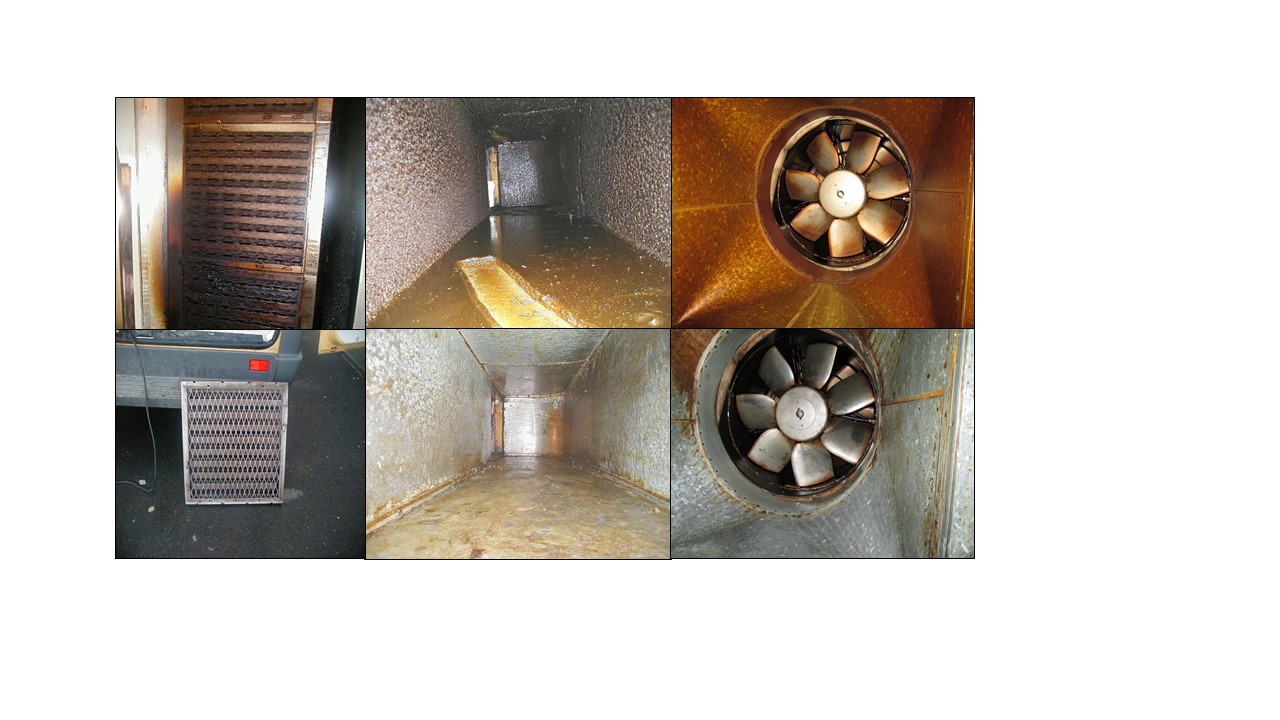We’re entering a busy time of year for the hospitality industry. Hotel kitchens and restaurants will no doubt be even more hectic than usual. Many school kitchens and work canteens are gearing themselves up for Christmas lunches too. While we’re sure fire safety in the kitchen is something people are always conscious of, it’s probably not the first thing on everyone’s mind at the moment.
But any business that cooks food on a commercial scale needs to think about it. There are plenty of obvious hazards around the kitchen. But one of the biggest fire risks in catering establishments results from the build-up of grease and oil in extraction system ductwork. All it takes is a spark to ignite those combustible deposits. Fire can then spread rapidly throughout the entire ducting system – which may be routed through other parts of the building to reach a roof or external wall. Potentially an entire property could be destroyed as a result.
Because ductwork’s out of sight, it’s easy for it to be out of mind. But if your business isn’t paying enough attention to the risk, it’s vulnerable for several reasons. For starters, you could be breaching your legal obligations when it comes to carrying out your fire risk assessment - grease extraction system cleaning is a necessary step to address the potential fire hazard. (For more information on carrying out fire risk assessments – read more here.) Non-compliance could end up in criminal prosecution.
And you risk invalidating your insurance too. If a fire occurs in the extraction system and the investigation shows it’s due to inadequate cleaning, it could jeopardise your claim. A major fire could cost you your business and, at the most devastating end of the spectrum, cause injuries and fatalities.
Make sure your staff are well trained in the risks of grease extraction systems and understand how to use commercial cleaning chemicals and specialist tools. It’s a difficult activity to do properly; bends and corners of ducts often trap highly flammable grease deposits but can be very awkward to access. It’s worth considering using a professional cleaning contractor like Envirogroup as they will ensure (and document) that a thorough clean has been done.
Using fire suppression systems in commercial kitchens
Unfortunately the fire risk in a commercial kitchen can’t be completely removed so it’s important to think about the systems you have in place if a fire did break out. Fire blankets aren’t adequate as you can’t get close enough to use them so it’s worth looking at alternatives like kitchen fire suppression systems.
How do they work?
They operate by detecting the fire automatically. A wet chemical agent (stored in tanks and mounted enclosures) is then released from appropriately positioned nozzles. The agent reacts with the heat and grease to create a soapy foam layer. This suppresses the flames and starves the fire of oxygen to prevent it reigniting. It may sound messy but, as the agent remains liquid if it comes into contact with appliances that aren’t on fire, it can be cleaned up quickly.
There’s a lot to deal with if you’re responsible for a commercial kitchen but it’s vital you keep fire safety firmly at the forefront of your mind. Even a small fire can have a significant impact. An out-of-action kitchen can spell commercial disaster for your business and fire can destroy reputations too. A periodic deep clean of your extraction system and ductwork or a clean-up after a fire suppression system has activated is an awful lot quicker and far less costly than dealing with all the potential consequences of a kitchen fire.
One complete fire and security solution
Need a local team to help with fire safety and security?
